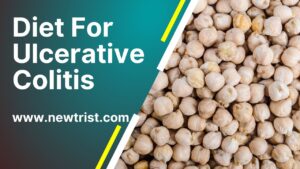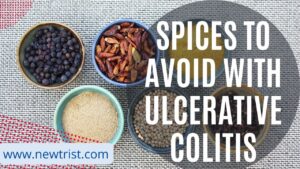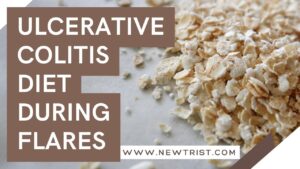Diet for Ulcerative Colitis includes yogurt, potatoes, chickpeas, smoothies, white rice, plain bread, pasta, fruits low in fiber, and refined cereals. These trigger away the ulcerative Colitis symptoms. The ulcerative Colitis diet plan needs to be flexible according to the changes in the body’s condition.
- Eat smaller meals at frequent intervals rather than three large meals.
- Foods rich in omega3 fatty acids help to fight against inflammation. High intake of omega-3 fatty acids showed some benefits in people with Ulcerative Colitis.
- Probiotic foods in which good bacteria are found in abundance also help in inflammation.
- It is necessary to hydrate with plenty of fluids to overcome the dehydration caused due to diarrhea.
- Low-fiber foods such as white rice, plain bread, and pasta can reduce the frequency of bathroom visits.
- Steamed and cooked vegetables (without outer peels and seeds)
Best Nutritionist in Bangalore
Consult 19-year-experienced Chief Nutritionist Vasanthi, in person at HSR, Koramangala, Bellandur, Haralur, Electronic city, or online across India.

Table of Contents
Ulcerative Colitis
Ulcerative Colitis is usually found in the colon, the innermost lining of the large intestine, and the rectum. Ulcerative Colitis is a chronic bowel disease characterized by digestive tract inflammation. Patients with ulcerative colitis are at an increased risk of colon cancer.
Ulcerative colitis is believed to be an autoimmune condition by many experts. Some symptoms of Ulcerative colitis include stomach pain and blood or pus in diarrhea. Symptoms may be mild or worse depending upon the health conditions.
Ulcerative colitis may lead to severe complications if untreated. The inflammation may spread to the other parts of the colon deeply and cause serious complications called Toxic megacolon.
Ulcerative Colitis Foods To Eat
Patients with Ulcerative Colitis can opt for a low-residue diet rich in carbohydrates and proteins, low fat and low fiber diet. The high fiber content present in raw vegetables and fruits is difficult to digest.
Diet for ulcerative colitis is given in smaller meals to help digest faster than bulkier ones. Moving from a sedentary to an active lifestyle and managing stress aids during flares. Some soft and easy-to-digest foods are recommended.
- Fruits low in fiber (Peeled and deseeded)
- Refined Cereals like corn flakes and Granola
- Yogurt topped with fruits
- Soft-cooked white rice
- Toasted potatoes
- Boiled chickpeas
- Smoothies
- Low-fat cheese and crackers

Best Diet For Ulcerative Colitis
Yogurt Diet For Ulcerative Colitis:
These are full of vitamins and good fats. Several foods that have been fermented: Include yogurts with probiotics in active form. Digestion may be aided by the “good” bacteria in them. According to some research, taking probiotics regularly can help lessen flare-ups and symptoms.
Instant Oatmeal Diet For Ulcerative Colitis:
Compared to other types of grains and oats, instant oatmeal without additional taste is a little easier to digest. Refined grains: Pasta, bread, and cereal produced from refined grains are the healthiest options.
Digesting whole grains is more difficult. Many white pieces of bread and grain products are fortified by manufacturers with additional minerals and vitamins.
Egg Diet For Ulcerative Colitis:
These provide a variety of critical nutrients, including supplemental omega-3. They are often simple to digest, which makes them suitable for a diet plan for ulcerative colitis.
Fluid Diet For Ulcerative Colitis:
Dehydration can result from diarrhea, so people with illnesses like ulcerative colitis may need to drink more than usual.

Foods To Avoid For Ulcerative Colitis
- Insoluble fiber
- Fried foods
- Sodas and Sugars
- Foods high in Lactose
- Spicy foods
- Foods high in gluten
- Fatty foods
Spices To Avoid With Ulcerative Colitis
Spicy foods are known to trigger colitis. Some spices like turmeric, ginger, cumin, and cinnamon act as anti-inflammatory agents and maintain gut bacteria and promote digestion. Some spices may irritate and might upset the GI tract. Few of them are
- Red chili powder
- Peppercorns
- Cloves
- Nutmeg
- Garlic
- Mustard
- Curry

Ulcerative Colitis Diet During Flares
Environmental factors, westernized diets and lifestyles, and genetics. Healthful diet management can help a person manage ulcerative colitis. During a flare, it may be difficult for a person to digest some nutrients, such as fiber.
People might be able to consume different things when there isn’t a flare, but they discover that doing so makes them feel uncomfortable. From person to person, different foods will cause different symptoms.
People who have ulcerative colitis need to consume foods that are high in potassium, folate, magnesium, calcium, and iron. Omega-3 fatty acids, which are abundant in salmon, may have health advantages beyond the digestive system.
Some of the better food choices for someone with ulcerative colitis is applesauce. However, applesauce may be difficult to digest during a flare-up because of its high fiber and sugar levels.

Foods Not To Eat with Ulcerative Colitis
Ulcerative colitis flare symptom is influenced by the meals people consume. Diets will differ from person to person because different people will react differently to the same food. Some foods are acknowledged by medical specialists as potential ulcerative colitis causes.
Foods not to eat with Ulcerative Colitis are Caffeine, Dairy products, Carbonated drinks, High-fiber foods, Popcorn, Potatoes, Foods that contain sulfur or sulfites, Fatty meat, Nuts, nut butter, and seeds, Sugar, Fructose sugar, certain vegetables, Spicy foods, Gluten, Dietary emulsifiers.
Ulcerative Colitis Diet Plan
|
Morning Drink |
Dandelion tea |
|
Breakfast |
Scrambled Egg (2) +brown bread Toasted (1) + 1 apple |
|
Soup |
Broccoli soup |
|
Salad |
Tarragon chicken salad |
|
Lunch |
Rice (1 cup) + kidney beans Curry (1 cup) + green chutney |
|
Evening Snack |
Avocado toast |
|
Dinner |
Roti (2) + Potato Curry (1 cup) |

Foods For Ulcerative Colitis
Mediterranean Vegetable Soup Ingredients
- Cooking oil
- ½ cup Onion (peeled and chopped)
- ½ cup Zucchini (peeled and chopped)
- 1 cup Yellow Squash(chopped)
- 1 cup chickpeas – Washed, soaked overnight, and boiled
- Oregano – ½ tsp
- ½ cup diced tomatoes
- Vegetable broth
- ¼ cup low-fat yogurt
- 1 cup of Water
- ½ tsp dried oregano
- Salt to taste
Cooking Instructions
- Place a large saucepan on medium heat and add some oil and let it heat.
- Add chopped onions, zucchini, and yellow squash and saute for about 3 minutes
- Add the vegetable broth, chickpeas, diced tomatoes oregano, and water and allow them to boil.
- Reduce the flame and boil for 5 minutes
- Serve hot with yogurt toppings.
Nutritional Value
Energy – 141.5 Cal, Protein – 5.2 gm, Total fat – 1.1g, CHO – 0g
Benefits
The vegetable soup is loaded with healthy nutrients and goodness. It helps in digestion and weight loss. Soup is an excellent dish during times of cold and flu.
Soups are rich in carbohydrates, proteins, vitamins, and minerals that supply the energy needed for daily activities. It contains a lot of water that helps to maintain fluid balance during diarrhea.
Soups are antioxidant-rich foods that help to prevent wrinkles, dark circles, blemishes, and fine lines.
